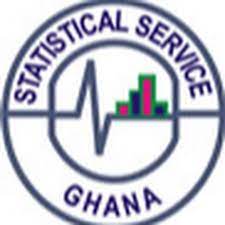
The Ghana Statistical Service (GSS) has completed a national training programme for 40 field teams ahead of the start of data collection for the Quarterly Labour Force Survey (QLFS).
The QLFS is a new survey that will provide regular data on employment, multidimensional poverty, and food insecurity in Ghana. The closing ceremony for the training was held on Monday, 12th May 2025.
In an address to the field officers, the Deputy Government Statistician, Dr. Faustina Frempong Ainguah stated that the QLFS will support evidence-based planning and monitoring for national development, especially in light of recent shifts in work patterns under the 24-hour economy policy.
“The focus of this survey is not only on data collection, but on understanding how people live, work, survive, and plan,” said Dr. Faustina Frempong-Ainguah.
“We are collecting information that will help government and partners make informed decisions”, she added.
Fieldwork is scheduled to begin on Monday, 17 May 2025, and will continue through the fourth quarter of 2026.
The QLFS will gather information on labour force participation, including full-time, part-time, and shift work; job quality and working conditions; non-income indicators of poverty, including housing, health, education, and access to basic services and the extent and causes of food insecurity at the household level.
The data will be collected using electronic tablets and a computer-assisted personal interview (CAPI) application. Each team consists of one supervisor, four interviewers, and one driver.
The GSS has also trained seven quality monitors and a central team to manage real-time data review through a digital dashboard.
Francis Bright Mensah, Project Coordinator for the QLFS, stated, “Our field officers are key to this process. The accuracy of the data depends on how the interviews are conducted.”
The QLFS is being implemented by GSS with technical support from the International Labour Organization (ILO). The results will support policy reviews related to employment, social protection, and economic inclusion, and will contribute to tracking progress on national and global development targets. GSS indicated that public participation is essential for the success of the survey.
It encouraged selected households to cooperate with field officers and provide complete and truthful responses.
“We encourage all selected households to take part, Your information will help shape programmes and resource distribution”, Dr. Faustina Frempong-Ainguah added.
The GSS also called the media, local authorities, and community leaders to support public awareness of the QLFS.
DISCLAIMER: The Views, Comments, Opinions, Contributions and Statements made by Readers and Contributors on this platform do not necessarily represent the views or policy of Multimedia Group Limited.
DISCLAIMER: The Views, Comments, Opinions, Contributions and Statements made by Readers and Contributors on this platform do not necessarily represent the views or policy of Multimedia Group Limited.